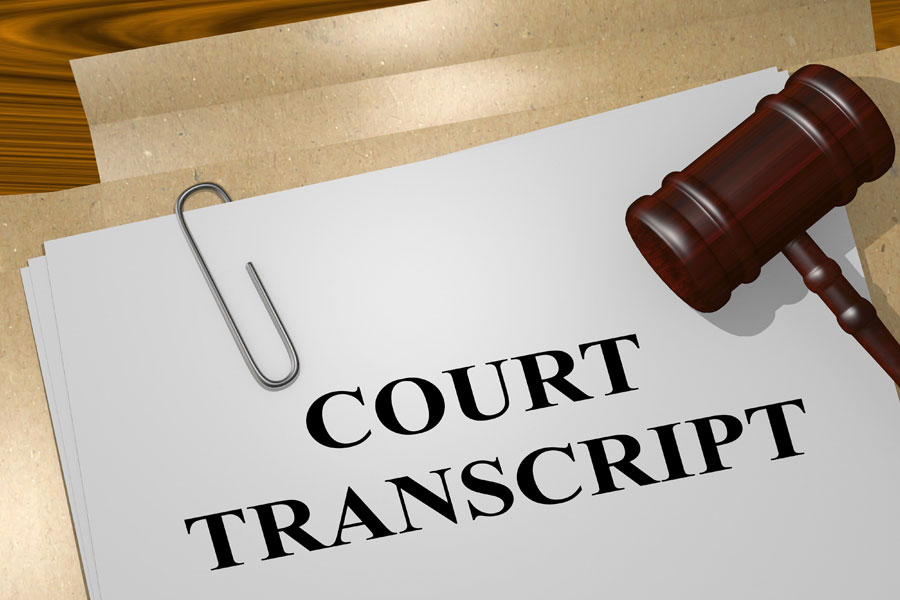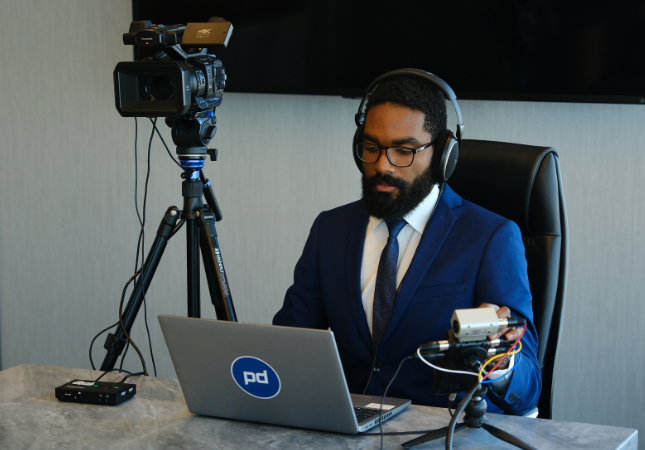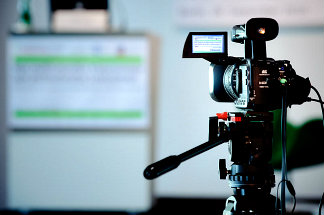The Value of Legal Video Clip Depositions in Modern Legal Providers: What You Ought to Know
Lawful video depositions have ended up being necessary in today's lawful landscape. They supply a multidimensional view of witness testaments that typical records just can not match. By recording both spoken and non-verbal communication, these depositions improve the general understanding of a witness's reliability. The effectiveness of video clip depositions pivots on different variables, including compliance with lawful requirements and finest practices. Exploring these elements exposes their real significance in modern-day lawful services
What Are Legal Video Depositions?
Lawful video depositions work as an important device in the litigation process. They include videotaping witness testaments in a video clip style, catching both non-verbal and verbal interaction. This technique allows lawyers to document the disposition, expressions, and responses of witnesses, supplying a richer context for the testament. Commonly performed in a regulated setting, these depositions are led by attorneys that ask inquiries while a court reporter documents the discussion. The resulting video can be vital for test prep work, as it enables legal representatives to evaluate the trustworthiness of witnesses and fine-tune their strategies. Furthermore, lawful video clip depositions can be made use of in various lawful contexts, ranging from civil disagreements to criminal situations. The auditory and aesthetic elements of video clip depositions improve the discussion of proof, making it a necessary part in the modern-day legal landscape. On the whole, they add substantially to the effectiveness and performance of legal proceedings.

Advantages of Video Depositions Over Typical Approaches
Video clip depositions supply numerous advantages compared to conventional approaches of taking witness testimonies. One significant advantage is the ability to record both audio and visual elements, providing a more comprehensive record of the witness's declarations. This twin layout boosts clarity and permits lawyers to reference details nuances during trial prep work. Additionally, video clip depositions facilitate remote participation, making it much easier for witnesses who might be unavailable for in-person appearances as a result of geographical constraints or wellness issues.Moreover, video clip depositions can expedite the general deposition process, decreasing the time and prices related to traveling and logistics. They likewise enhance ease of access, as tape-recorded depositions can be easily shared among legal teams and referenced at any time. This convenience adds to far better case management and prep work. Overall, video clip depositions represent a modern-day, efficient strategy to gathering witness testimonies, aligning with the advancing requirements of the lawful occupation.
The Duty of Body Movement and Tone in Testimonies

In lawful video depositions, body language and tone play crucial duties in communicating a witness's integrity and dependability. Nonverbal cues can give understandings right into a witness's mood, influencing how their testimony is perceived. Understanding the influence of these components is crucial for jurors and attorneys alike when assessing the integrity of a testimony.
Nonverbal Communication Insights
While verbal communication is commonly stressed in legal testaments, nonverbal hints such as body movement and tone play a crucial role in communicating reliability and feeling. Onlookers of depositions might keep in mind that a witness's position, motions, and face expressions can considerably affect perceptions of reliability. For instance, constant eye call might indicate self-confidence, while staying clear of gaze can suggest deceit or discomfort. In a similar way, the tone of voice-- its pitch, speed, and volume-- can give feelings of sincerity or unpredictability. Attorneys must be in harmony with these nonverbal signals, as they typically give crucial context that enhances talked words. Understanding these nuances can improve the efficiency of depositions and affect the result of lawful procedures.
Emotional Tone Impact
The emotional tone shared during lawful testimonies considerably influences exactly how a witness is perceived. Body language, vocal inflections, and faces play crucial functions fit the story of a statement. A witness exhibiting self-confidence through constant eye call and a tranquil tone can infuse a feeling of integrity and interaction. Alternatively, indications of anxiousness, such as fidgeting or a shaky voice, might bring about skepticism regarding their account. The nuances of psychological expression can affect the analysis of realities, making it necessary for attorneys to recognize these signs. In video clip depositions, the auditory and aesthetic elements combine, emphasizing the value of psychological tone in sharing genuineness and truthfulness within the lawful procedure.
Credibility and Trustworthiness
An essential consider developing integrity and reliability throughout testimonies depends on the witness's body movement and tone of voice. Viewers frequently depend on non-verbal signs-- such as eye contact, position, and motions-- to analyze a witness's genuineness. For instance, a witness that preserves eye contact and displays open body language may be viewed as even more straightforward and reputable than one who stays clear of eye get in touch with or appears closed off. In addition, tone of voice plays a crucial duty; a consistent, calm tone can enhance the trustworthiness of the testament, while variations in pitch or quantity may elevate doubts. Ultimately, the combination of body language and vocal tone significantly influences just how a witness's declarations are obtained and analyzed in a legal context.
Best Practices for Performing Video Clip Depositions
Performing video depositions requires cautious preparation and implementation to ensure a effective and clear discussion of testament. It is vital to pick a silent, well-lit location to decrease diversions and safe optimal video top quality. The devices must be evaluated ahead of time, consisting of video cameras, microphones, and illumination, to stay clear of technical concerns during the deposition.Next, events involved must evaluate the style and treatments beforehand, ensuring that everyone comprehends their functions. The deponent should be oriented on the procedure, including how to react clearly and concisely.Additionally, preserving a professional attitude throughout the session is important. This includes avoiding from talking over each other and verifying that all concerns are routed appropriately. Ultimately, it is important to tape-record the deposition in a style that permits easy playback and review, maintaining the honesty of the testimony for future usage.
Lawful Factors To Consider and Compliance Issues
Exactly how do lawful considerations and conformity problems influence the effectiveness of video clip depositions? Lawyers must navigate an intricate landscape of guidelines, making certain that video clip depositions follow administrative rules and criteria. Compliance with legislations worrying personal privacy, consent, and recording methods is crucial. As an example, getting specific consent from all parties included is needed to avoid legal repercussions.Additionally, the admissibility of video clip evidence in court can depend upon conformity with step-by-step requirements. Making certain that the tools used meets technological standards is likewise crucial, as inadequate top quality can undermine the deposition's reliability.Moreover, lawyers should recognize any details state laws that regulate video depositions, as these can vary substantially. Failure to resolve these considerations can not just threaten the honesty of the deposition yet likewise affect the overall situation method, inevitably affecting the customer's lawful end results.
How Video Clip Depositions Effect Court Understanding
While video clip depositions can function as effective tools in legal procedures, their impact on jury assumption is significant. The auditory and visual aspects of video recordings give jurors with an extra comprehensive understanding of witness temperament, reliability, and psychological responses. This multimedia approach can improve the jurors' capability to assess the reliability of testimony contrasted to typical text-based transcripts.Moreover, video clip depositions permit jurors to observe body movement, tone of voice, and facial expressions, all of which can affect their interpretation of the witness's statements. The visit site existence of a witness on screen can humanize them, promoting empathy and connection, which might persuade jurors' opinions. Conversely, a witness that shows up unreliable or incredibly elusive on video might bring about negative perceptions that affect a court's choice. Inevitably, the vibrant nature of video clip depositions plays an important duty in shaping just how jurors translate evidence and reach their decisions.
The Future of Video Clip Depositions in Legal Practice
As improvements in technology remain to reshape the lawful landscape, the future of video depositions is positioned for substantial advancement. Technologies such as expert system, online truth, and boosted video conferencing devices are expected to simplify the deposition procedure and boost accessibility. Lawyers might make use of AI-driven analytics to evaluate witness reliability and situation strength a lot more effectively.Moreover, the integration of digital truth could enable courts to experience immersive simulations of depositions, providing much deeper context and understanding. In addition, the pattern towards remote depositions is most likely to continue, providing better flexibility for customers and lawyers alike.As remote work webpage becomes progressively stabilized, video clip depositions will likely end up being typical technique, reducing expenses and time restrictions linked with traditional techniques. In general, these technological developments assure to improve the performance, performance, and accessibility of video depositions in legal method, ultimately transforming how lawyers prepare for trial.
Often Asked Questions
Just How Much Do Lawful Video Clip Depositions Commonly Price?

Can Video Clip Depositions Be Used in Any Type Of Type of Instance?
Video depositions can be made use of in different kinds of instances, consisting of civil, criminal, and family members regulation. Their adaptability permits attorneys to existing witness statements properly, adjusting to the certain requirements of different legal circumstances.
What Devices Is Needed for a Video Clip Deposition?
To conduct a video deposition, necessary devices consists of a high-grade cam, microphone, illumination, and a trusted recording tool. In addition, a computer with editing and enhancing software program may be needed for post-production and formatting the last video.
How much time Does a Typical Video Deposition Last?
A typical video deposition lasts in between two to 4 hours, depending on the complexity of the instance and the number of concerns posed. Extended sessions might happen, yet breaks are typically included for individual comfort.

Are Video Clip Depositions Admissible in Court?
Video clip depositions are generally admissible in court, offered they follow legal standards and guidelines of proof. Their usage improves clearness and preserves witness testimony, aiding in the judicial process throughout tests and hearings. Legal video depositions have become important in today's legal landscape. In addition, lawful video clip depositions can be used in various legal contexts, varying from civil conflicts to criminal situations. Additionally, video clip depositions promote remote engagement, making it much easier for witnesses who may be inaccessible for in-person looks due to geographical restrictions or health issues.Moreover, video clip depositions can accelerate the overall deposition procedure, minimizing the time and expenses associated with traveling and logistics. Guaranteeing that the equipment made use of satisfies technical criteria is likewise important, as bad quality can threaten the deposition's reliability.Moreover, attorneys must be conscious of any details state legislations that govern video depositions, as these can differ considerably. Additionally, the fad toward remote depositions is most likely to persist, using look at here greater versatility for customers and attorneys alike.As remote work comes to be progressively stabilized, video depositions will likely end up being standard method, reducing expenses and time restraints associated with standard approaches.